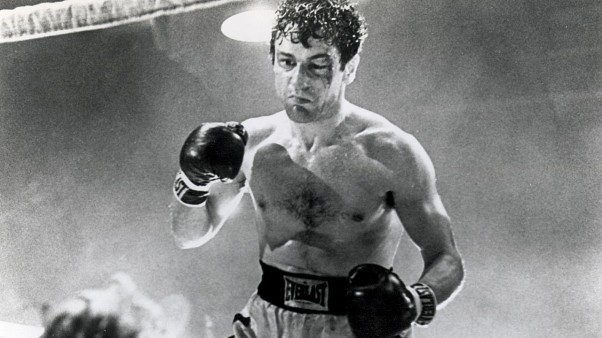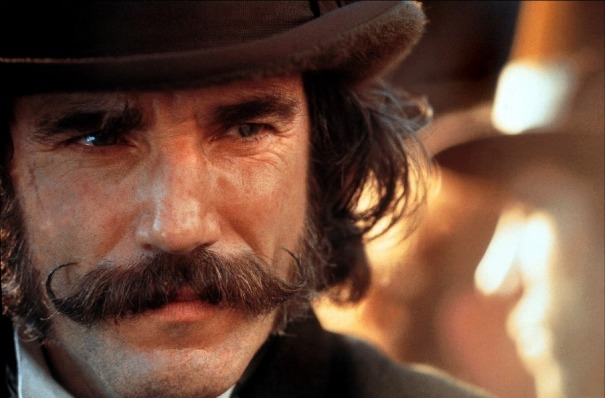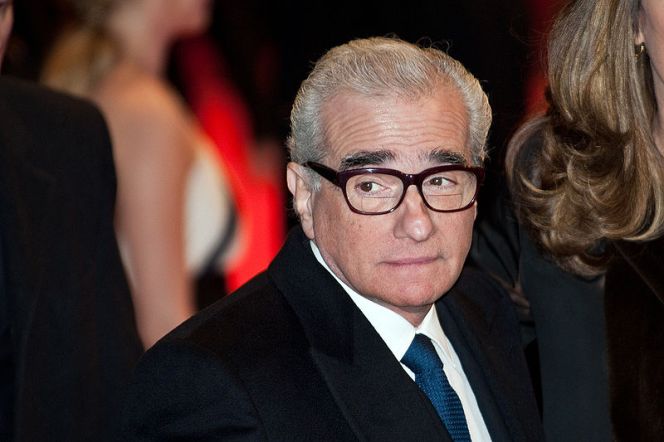Director Series Review: Martin Scorsese
Today I’m doing to take some time out to talk about one of the greatest directors in history, Martin Scorsese. This man is not only known for creating some exceptional and award-winning films, but he’s also known for doing so consistently. No George Lucas decline for the Scorsese - his original vision, while it may not pan out as perfect each and every time, is still with him, enabling him to continue producing top-quality films even 40 years after he began. I’m going to go over a few of his films (mostly my favorites, of course) and talk about why Scorsese is nothing less than a divine being sent from the sky to grace us with his genius.
Taxi Driver (1976) -
Scorsese’s big breakthrough came when he decided to cast Robert De Niro as a psychopathic cab driver. This film brilliantly displays the young Scorsese’s natural talent with dialogue and directing. What results is a slow-paced but always compelling journey into the mind of a man who just can’t deal with the way the world works. Ultimately, he becomes a hero, though it’s questionable exactly whether he understands why. Rotten Tomatoes rates this as one of Scorsese’s top films with a 98% from critics and it’s no wonder why. Everyone should see this flick at least once.

Raging Bull (1980) -
A few years later, Scorsese follows up the greatness (and Rotten Tomato score of 98%) of Taxi Driver with Raging Bull. Again the director goes to De Niro to play his lead and as it turns out, it was the perfect choice. This film follows a boxer’s career as he climbs to fame, all the while dealing with his anger issues and destroying the good things around him. At this point Scorsese demonstrates that he has the ability to delve even deeper into character and reiterates the fact that he can use action and drama together to produce some amazing results.
Goodfellas (1990) and Casino (1995) -
Even though Goodfellas is considered the far better of these two films by critics (and RT of 97% vs. 80%), I put it together with Casino because these two are the classic Scorsese “wise guy” flicks. Each details the comings and goings of life in the mob and each does so in a manner that leaves the viewer without any doubt of the terror that accompanies the glamour. Again, perfect casting from Scorsese and a great mix of character development and tense action sequences.
Bringing Out the Dead (1999) -
Here is where I feel that Scorsese really missed the mark with whatever he was trying to say. The almost psychedelic film Bringing Out the Dead never really takes off, playing out like a series of stream-of-thought visions. I can see the underlying message beneath, but the way it comes together is more of an art film and Scorsese’s directing talents seem to shoot way past the visual subtly ususally used to make this kind of movie work. I like to think he had other stuff on his mind when he did this one.

Gangs of
And here is where I and the critics differ. Though the RT scale puts Gangs of New York at a mediocre 75%, I personally felt like Scorsese hit a new level with this one. Though much of the subtle, conversational interplay is downplayed in this one, he manages to merge his own style with the trappings of a
The Departed (2006) -
As usual, Scorsese goes back to using Leonardo DiCaprio, an actor that is pretty much a mainstay in this phase of the director’s career. And while I normally hate remakes, particularly those of films that I absolutely loved in their original version, Scorsese manages to pull this one off almost perfectly. I was a bit pissed about the change in the ending of the film, but otherwise, this is one of the only remakes of an Eastern film that I can actually watch.
The last Scorsese film that I have seen,
But Scorsese has his hits and his misses and always comes back. And even if you don’t love one film, you’re likely to change your point of view on the next one he makes. The director’s next project is called Silence, a film about Jesuits coming to 17th-century
Photo Credits -
Martin Scorsese courtesy of Seibbi via Wikicommons
Raging Bull courtesy of screened.com
Gangs of
